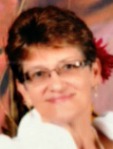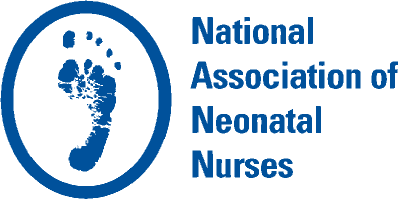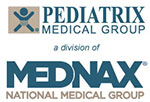NANNP Corner
Council Update
 Lee Shirland, MS APRN NNP-BC
Lee Shirland, MS APRN NNP-BC
The Bunny Touch
As I write this article, we are celebrating National Nurses Week! Mother’s Day also is in May. To honor and celebrate nurses, mothers, and the Mentoring Toolkit that will be available for purchase within this next month, I am sharing an article I wrote for NANN’s Central Lines in 2001.
Neonatal intensive care unit (NICU) nurses are faced with challenges every day. One of the most difficult can be maintaining objectivity or being nonjudgmental when caring for an extremely premature or ill infant of teenage parents. In NICUs during shift change, comments such as these may be heard: “This mom is 14, and this is her second pregnancy!” “Both parents are 16, so you know who will be paying for this baby.” “Mom’s only question was, ‘When will he be circumcised?’ Of course, what else would you expect from a 12-year-old?” Nurses do not make these comments to be mean, but rather to vent frustration and concern for the tiny, fragile babies who are clinging to life with the help of machines that many times are larger than they are.
Teenage parents enter the health system with complex and varied issues. What they most require is patience, understanding, and respect. These characteristics are displayed by Bernice (Bunny) Gendreau, RNC, who is a labor and delivery nurse. Bunny has been and continues to be my role model.
Like many NICU nurses, I worked the night shift for many years. When I went to labor and delivery (L&D) to attend a high-risk delivery or to obtain an update on a high-risk mother, often I would hear the nurses say, “This patient needs the Bunny touch” or “Bunny, I’ve tried everything and I can’t get this patient calmed down. Would you mind trying?” or “I’m glad you’re working tonight, because this patient really needs you.” It was not unusual for Bunny to be asked to “special” nurses from our hospital or family and friends from her home town. The hospital administrator received many comment cards praising the wonderful care patients had received from this nurse during labor.
Bunny bonded with parents from all walks of life as they went through this life-changing, highly stressful event. She treated all of her patients with respect and dignity. However, her special parents, the ones she most enjoyed caring for, were the teenage parents. When asked why, she said that she was a teenage parent and so she knows how they feel. She talks about receiving prenatal care through a hospital clinic and about the rude way in which she was treated by some of the providers. She will never forget the comments some professionals made when they didn’t realize she could overhear them, as well as the impact those comments had on her self-esteem.
Bunny was a typical teenage mother. She had her child at 15, her second at 16, and her third at 18. She was married, and she remains proud that she never accepted a penny from welfare. Her first marriage did not last, as most teen marriages do not, but she remarried. When her three daughters were grown and her son was in school, she returned to school, earned her diploma, graduated as class valedictorian, and became a registered nurse. She fulfilled her dream by becoming a Labor and Delivery (L&D) nurse.
I remember marveling at her patience, calm, and expertise when I attended deliveries. Bunny did whatever was necessary to help the patient cope with the experience. Her patients did not know she suffered from debilitating arthritis and that sometimes it hurt when her skin was merely touched. Sometimes I wondered whether I was the only one who noticed Bunny biting her lip when a patient wrapped her arms around Bunny’s neck so she could push more effectively. I remember a time when I went to L&D to talk to Bunny and was told that she wouldn’t leave her patient’s room because she was worried about the patient’s condition. The next day I learned that her patient was in the critical care unit. The physician thanked Bunny for having made him come in the previous night when she realized things were not going well for the patient.
Bunny’s concern for her patients did not stop when they left L&D. She frequently visited mothers on the postpartum unit. If one of them required more time than the clock allowed, Bunny punched out and went back on her own time to talk to the mother. That special “Bunny touch” helped her patients through emotional crises. Some of her patients had to overcome feelings of guilt about a previous abortion, fear of bonding with their premature infant because of a belief the baby was going to die, the trauma of rape resulting in a birth, and the feeling of failure when medical intervention and compliance with care did not halt a preterm delivery.
Bunny exemplifies the nurse I continue to strive to become. I will forever be grateful to her for the example she set for me and for all nurses. I am very proud to say that Bunny is also my mother.
Bunny retired in 1995 from the L&D unit at Eastern Maine Medical center in Bangor, ME, as a result of her debilitating arthritis, which required multiple surgeries. Although her many years of hard work took a toll on all of her joints, she said that the happiest and most satisfying days of her nursing career were in L&D and she misses them. Her former patients and colleagues miss her greatly. She has served as a labor coach when requested; she even served in this capacity during the births of two of my grandchildren. She is no longer physically able to be in the L&D setting either as a nurse or labor coach, but she is considered a legend by her former colleagues, both nurses and physicians. Her legacy continues because she treated all of her patients like she would want herself or members of her family treated.
Whenever I meet a family that the nursing or medical staff find “difficult” or teenage parents who do not seem to understand how ill their baby is, I find myself thinking, “How would mom [Bunny] handle this?” Then I try to approach the family with patience, understanding, and above all, a nonjudgmental attitude. Thank you, Mom, and all the nurses who touch the lives of families every day in the NICU.


